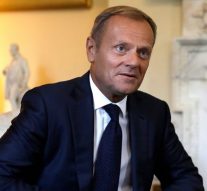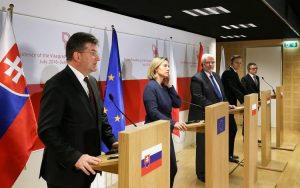
Member States and the multi-speed foreign policy. Ok, but, what’s new?
External Relations 26 February 2017In its last report, the S&P Global Ratings agency arose its voice among the several calls for change within the European Union. In particular the study pointed out how the structure itself of the Union is the central problem to deal with today. The European Union does not reflect a consistent ‘pooling’ of the various dimensions of nation-state sovereignty, and therefore it’s unsustainable in its current shape.
This report is added to a growing number of politicians pleading a multi speed process, in order to foster the integration of the most solid aspects of the European spill-over process. The idea is to endorse a hard core of persuaded member States in deepening the capabilities, competencies, and strength of the European Union, leaving aside, at that moment, a group of more timid (you can read less confident) members.
The external action service of the European Union will of course follow this lead, and the European foreign policy is even more at risk of being a voice of just a little group of States, at the expense of the original concept of common foreign policy. The European foreign policy, as opposed to its effectiveness, is well renowned in Brussels as a very closed policy-field, and an élitist circle where the powerful member States can better exert their influence, comparing other fellow European delegates. The importance of being part of a common and a unique rule, especially in this particular policy, makes eastern members afraid about the risk of being left on the sidelines of the developments of common policies, with possible relevant consequences.
Following this feelings, last week the Visegrád Four, composed of Poland, Slovakia, the Czech Republic and Hungary met in Valletta and agreed to come up with a common contribution to the Rome Declaration. The document, in the occasion of the Rome Summit to be held at the end of March, intends to outline the future of the EU. Various speeds are already a reality for the Union (with the eurozone, Schengen etc.) with Angela Merkel and the Italian delegates underlining the issue of differentiated integration as one way to move forward in the EU.
With subtle differences compared to the other Visegrad’ members, the Czech Republic has always opposed either an opening of the treaties or, in a second stance, a deepening of differentiated integration. Delegates in facts consider that the current legal framework and the related instruments offer enough room to tackle the challenges the Europe is facing today. Furthermore, the Czech Republic observes that regardless of proposals of possible variable speeds, the European Union should address the biggest expectations of its citizens – registered at the lowest place of the rank for “trust in the Union” by the Eurobarometer.
It is anyway clear that the EU and the evolution that its integration process will follow, will be both much more influenced by the results of elections this year – in the Netherlands, France, Germany and possibly Italy – than by what will be the outcome produced in Rome later in March.

EPA/PAWEL SUPERNAK POLAND OUT




